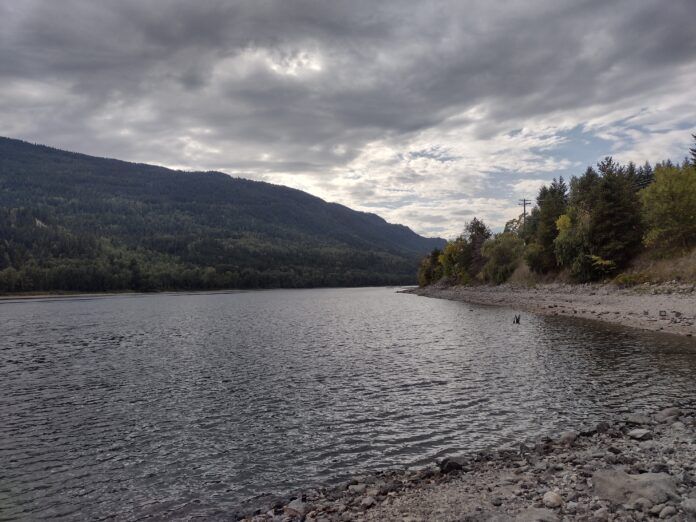BC’s lead negotiator for the Columbia River Treaty says concerns about low water on the Arrow Lakes are being raised at the highest levels.
Kathy Eichenberger says while province-wide drought and lack of snowmelt contributed to the abnormally low levels, requirements of the current treaty, which took affect nearly 60 years ago, made things worse.
“I think it’s important that we listen to the people around the Arrow Lakes, acknowledge what’s happening and emphasize we are addressing that in our negotiations to minimize future incidents like this,” she said. “It’s truly devastating.”
Eichenberger has been executive director of the provincial treaty team for the past 12 years, but before that she lived in the West Kootenay for a decade, holding several provincial environmental roles. She spent time on the lakes.
“I understand the passion of the people and why it hurts so much to see it in its current condition,” she said.
For five years Canada and the US have been negotiating a new treaty. Canada’s team includes representatives of BC, Global Affairs Canada, the Ktunaxa, Secwépemc and Syilx Okanagan Nations, Environment and Climate Change Canada, and Fisheries and Oceans Canada.
Eichenberger calls the existing treaty “behind the times and in need of renewal” and noted the cross-border discussions are non-partisan and don’t involve elected officials.
She said they are “acutely aware” of how low water levels on the Arrow Lakes are affecting communities, wildlife habitat, fish, tourism and recreation.
While Eichenberger said it’s hard to be certain whether drought or treaty requirements are more to blame for stranded and dead fish, exposed debris, drawn-down beaches, and marooned boats.
“I think it’s fair to say it may be equal contribution. There’s certainly room for improvement on the treaty operation side to ensure we can keep reservoir elevations higher than it is today.”
The existing Treaty requires Canada to provide water flows for power generation and flood-risk management in the United States, which also benefits salmon in that country. But the amount of water sent across the border this year was “definitely more” than it would have been without the treaty, Eichenberger says.
She says her American counterparts are not unsympathetic to the problem as they look at addressing ecosystems, climate change, and adaptive management in the new treaty.
“What that means for a modernized treaty, do we see eye-to-eye on that? Maybe not at this time. That’s what we’re negotiating.”
Eichenberger says Canada is seeking more flexibility to operate its treaty dams (Keenleyside, Duncan, and Mica) and reservoirs for domestic purposes, but this can only happen once a modernized treaty is in place, so the situation won’t change this year.
She adds they have been listening to residents of the Kootenays since 2012 and have heard “loud and clear” what people want in the revised treaty, including making environmental considerations a key pillar.
“We are working closely with local government committee on minimum reservoir levels. Everything we’ve heard over the last 10 years is informing our negotiating mandate and what we’re doing at the table.”


